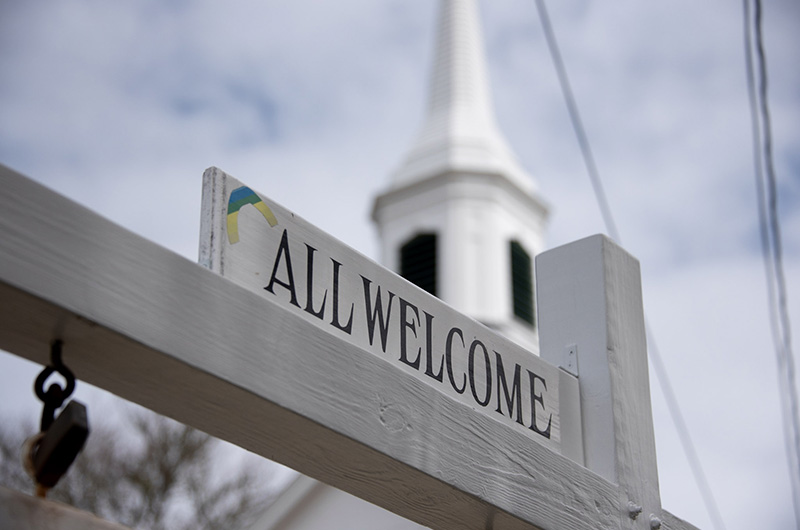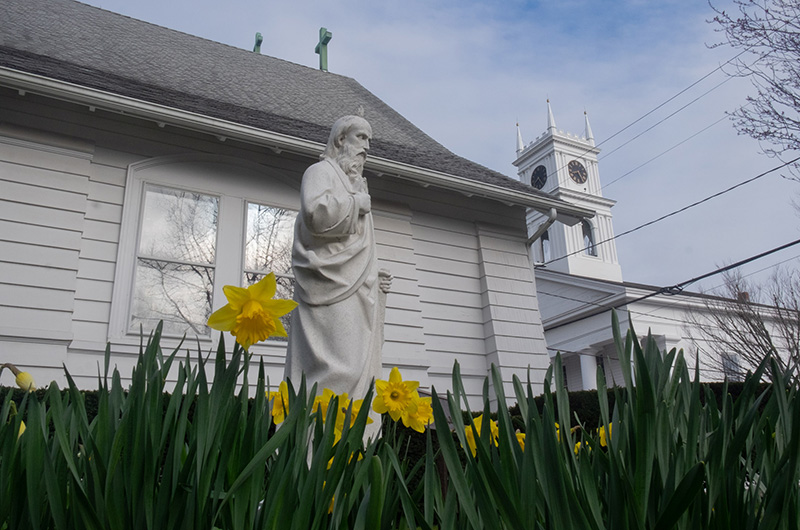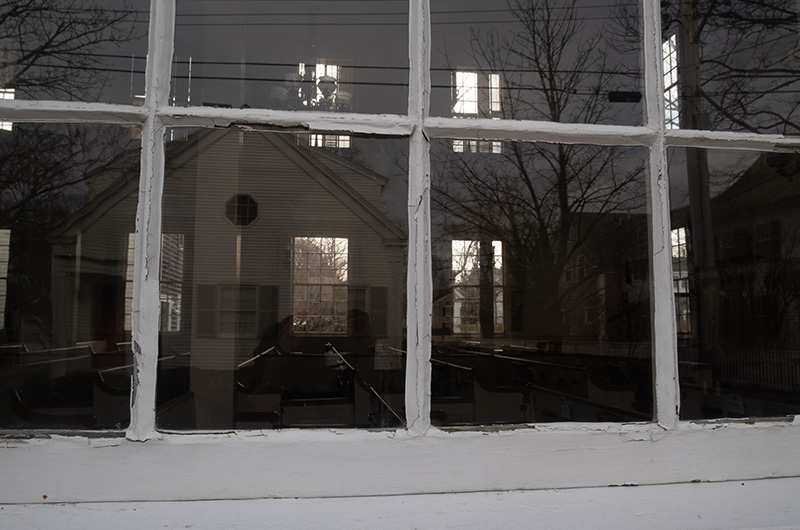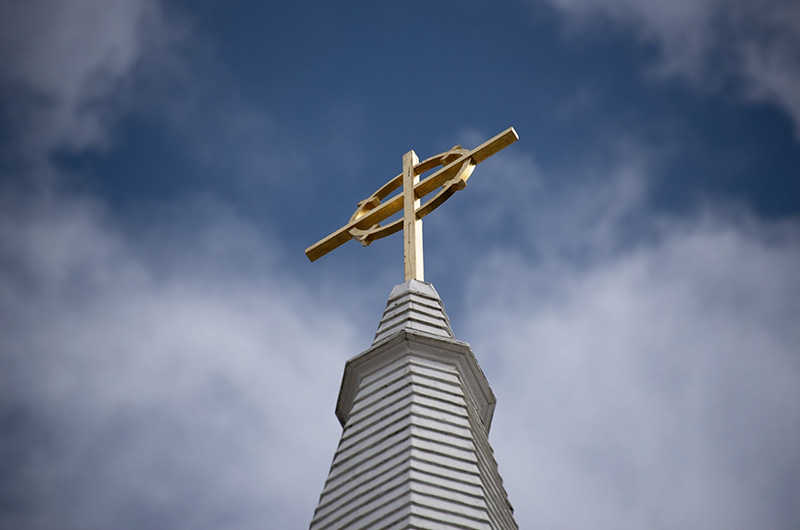Worshipers across Martha’s Vineyard prayed and lighted candles for health care professionals, coronavirus sufferers and essential workers during Palm Sunday services that were held online or pre-recorded by Island ministers.
At the more traditional Episcopalian and Catholic churches, pastors donned full vestments and presided on video from their empty sanctuaries, occasionally joined by two or three socially distanced musicians, singers and readers.
“It feels strange to be here all alone on Palm Sunday. It probably feels strange to you,” Rev. Michael Nagle of Good Shepherd Parish said by webcam from St. Elizabeth’s Church in Edgartown, where an urn filled with palm fronds was left at the entrance for parishioners to stop by and help themselves after mass.

Other faith leaders conducted services from their homes, with musicians and congregation members participating from their homes through live videoconferencing.
“I’m lighting the chalice to celebrate the caregivers, nurses, doctors and medical personnel who are working with strength and resiliency to keep us healthy through this pandemic,” Rev. Bill Clark told more than 60 people who joined the Unitarian Universalist Society of Martha’s Vineyard online for a live, interactive service.
“What affects one of us affects all of us, and that is certainly true at this time,” he said.
At Grace Church in Vineyard Haven, Rev. Stephen Harding offered words of encouragement for Islanders facing the growing global crisis.
“The people who are working at the hospital are going to do their best to care for everybody, and we as neighbors are going to do the same—not just for our parish, but for our Island and our neighbors and our friends,” Mr. Harding said in a pre-recorded sermon.
Palm Sunday services traditionally are based on the Gospel of Matthew’s account of Jesus arriving in Jerusalem, welcomed by the people in the streets as a liberator. More than one Island pastor found a timely message in the cries of the biblical crowd.
“The Hebrew translation of the word ‘hosanna’ means ‘God, save us,’” said Rev. Richard DenUyl of Edgartown’s Federated Church, in a podcast service. “It would not be overstated to say that in the middle of this global pandemic, those words have become an international plea.”
Rev. Chip Seadale of St. Andrew’s Church in Edgartown and Rev. Cathlin Baker of the First Congregational Church of West Tisbury were among other ministers who drew contemporary meaning from the New Testament hosannas.
“We long for leadership. We long for a cure. Save us,” said Ms. Baker, leading an interactive service from her home.
“In our suffering and fragility is the presence of God,” she said. “Our shared vulnerability has the power to bridge our differences.”
In a videotaped service from St. Andrew’s, Mr. Seadale asked “Who can save us from ourselves? We are both the victims and the victimizers, that’s the truth.”
There are no easy answers, said Mr. DenUyl of the Federated Church, reminding listeners that “hosanna” can also be translated as “praise God.”
“This is not about God looking down and saying to some people, ‘I told you so,’” he said. “Rather, this pandemic is a reminder that we live in a free and random universe... a world where a random virus can attach itself to anyone, anywhere, any time, but also a world where God’s loving presence lifts us up and carries us through.”
Faith leaders also looked for the meaning in past traumas, ancient and modern as well as personal. At Grace Church, Mr. Harding recalled his chaplaincy at the Ground Zero temporary morgue in early 2002, when first responders’ bodies were still being recovered.
“The firefighters that I blessed were dads, sons, uncles, ordinary people doing extraordinary things,” he said. “The people on our Island, in the hospital, our first responders, our teachers — you are doing extraordinary things in the midst of this virus.”
During the Unitarian Universalist Society service, Rabbi Lori Shaller, Mr. Clark’s administrative assistant and a congregation member, donned a kippah to share her perspective on Passover, which celebrates the release of the Jews from Egyptian enslavement nearly 2,000 years before the time of Christ.
“When we tell the Passover story at Seder, we talk about it in the first person, as if we were there,” Ms. Shaller said. “Where Jewish people, and I, derive resilience is from having experienced original enslavement... from knowing we’ve been here before and we’ve emerged, changed for sure, but intact.”
Singing in Hebrew, she then translated: “We were slaves and you, God, made us freer.”
“That’s the place from which I grow my resilience,” Ms. Shaller said.
Mr. Clark fought back tears as he recalled the way his Vineyard congregation helped him recover from what he had believed was a career-ending illness.
“Resilience is transmissible, by sharing the stories that inspire us,” he said. “We can inspire each other... and truly, is this not why we gather together as religious and spiritual communities?”









Comments
Comment policy »